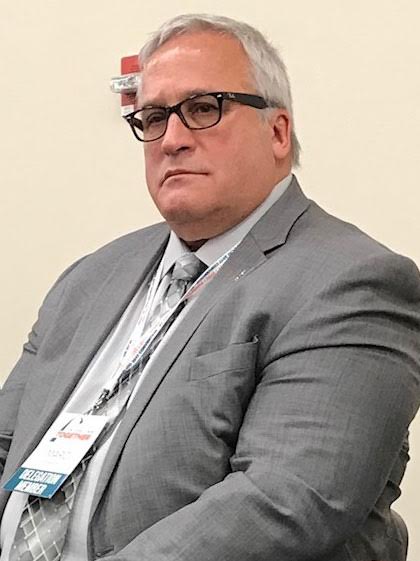
Marc Norberg is the assistant to the general president of International Association of Sheet Metal, Air, Rail and Transportation Workers (SMART). He gave these remarks at the AFL-CIO Convention in St. Louis today.
I am pleased to have the opportunity to share SMART's work on Jobs to Move America and to talk about how we have used public procurement—or government purchasing—to re-shore good American manufacturing jobs.
Jobs to Move America began as a national initiative to ensure that the billions of tax dollars spent on the purchase of buses and trains for our public transit systems results in the creation of family-sustaining, manufacturing jobs in the United States.
Historically, manufacturing has been a key pathway for Americans without a college education to enter into the middle class. Unfortunately, one of the last American railcar manufacturers—the Pullman Company—shuttered more than 35 years ago. Since that time, all of the major companies winning contracts to build trains for our public transit systems have been multi-national firms from around the world—German, French, Canadian, Japanese, Korean and, more recently, Chinese.
Jobs to Move America started back in 2010—at a time when the country was still struggling to recover from the Great Recession. Despite the fact that millions of Americans were unemployed, nearly all of the trains being purchased for our cities were being designed and engineered outside of the United States. Most of the high-value, high-skilled, highly paid manufacturing jobs for our trains also were being sent overseas. It was unthinkable. Billions of our tax dollars were bypassing U.S. workers.
For too long, the purchase of public goods in this country has been primarily driven by private, for-profit interest. Short-term cost savings and privatization are prioritized over long-term economic growth. Public agencies at the federal, state and local level largely have been reliant upon a race-to-the-bottom procurement framework, which has contributed to the dismantling of American manufacturing. Over the past several decades, we have lost millions of production jobs.
We needed a program for rebuilding our country’s middle class. We needed a global strategy that could leverage our taxpayer dollars to bring back American manufacturing, to get multi-national firms sending work overseas to bring more production state side and create more and better jobs for our communities.
We also needed a strategy to level the playing field for high road, union companies doing the right thing, that have a deep American footprint, and are investing in quality, family-sustaining jobs.
Jobs to Move America developed the U.S. Employment Plan, which creates a competition upwards among companies vying for million- and billion-dollar transit projects in the United States. During the evaluation of bids submitted by companies in a competitive public procurement, manufacturers are scored based on the robustness of their U.S. jobs programs. Train builders can earn higher marks for committing to paying their workers family-sustaining wages, good benefits and for investments in things like union apprenticeship and jobs pipelines for low-income communities.
Over four years ago, Jobs to Move America partnered with the Chicago Federation of Labor to implement the U.S. Employment Plan policy on the city of Chicago’s $2 billion investment in new "El" train cars. I’m proud to share that as a result of this collaboration, in 2016, my union, SMART, along with the Electrical Workers (IBEW), and the Jobs to Move America coalition signed the first of its kind, landmark community benefits agreement with Chinese rail builder CRRC.
This past spring, we broke ground on CRRC’s new $100 million train factory in Chicago’s South Side. Railcar manufacturing is coming back to Chicago for the first time in more than 35 years, since the closing of the Pullman factory. CRRC’s factory is currently being built and constructed union. Workers on the assembly line will be wall-to-wall union. And people from the surrounding community will have priority hiring.
As CRRC looks to win new contracts in the U.S. and expands its domestic presence, it is key that we build off our local Chicago partnership to reach a national understanding. To ensure that the Chicago facility remains a permanent flagship and that all new CRRC investments and facilities are covered by the same high road standards that we achieved in Chicago—it is key that our union develop new strategies to reflect an increasingly globalized world.
We know that China is investing billions in the U.S. each year and likely will only be increasing their investment levels. We know that in an increasingly globalized economy, building cooperative relationships with a rising power like China is imperative to our union’s long-term success. We must reach mutual understanding and shared expectations.
Through SMART's work in Beijing with the IBEW, AFL-CIO, Jobs to Move America and All-China Federation of Trade Unions, we believe our Chicago partnership with CRRC can be a model for Sino-American relations.
At SMART, we understand that our union’s work can no longer be limited to a traditional organizing model or to a domestic strategy. We must adapt. We must be able to develop nimble and innovative, global strategies to address the new organizing context and grow the power of our great American labor movement.

